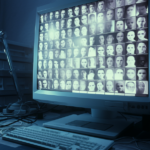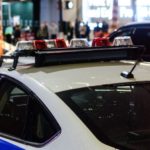Essex Police recently made seven arrests in Southend using Live Facial Recognition (LFR) technology, continuing its successful use in combating crime. The arrests occurred between October 13 and 21, 2024, during five deployments of LFR vans in Southend’s High Street, as part of the police’s response to incidents of disorder.

The arrests covered a range of offenses, including attempted murder, domestic violence, assault, drug supply, and shoplifting. This brings the total number of arrests made with the help of LFR vans to 25, following earlier deployments at events like the Clacton Airshow.
Chief Inspector Dave Browning, District Commander for Southend, expressed satisfaction with the outcome, highlighting that the technology has been instrumental in locating and apprehending individuals wanted for serious crimes.
“There have so far been no incorrect alerts in the 17 deployments we’ve had to date which also shows the technology is working really well,” Browning told a local outlet.
The LFR system functions by scanning faces from CCTV camera feeds and comparing them to a predetermined database of individuals of interest. The technology operates quickly, with facial scans taking less than a second.
Crucially, Essex Police reassured the public that data and images of individuals not on the watch list are automatically deleted, ensuring that only relevant matches are pursued by officers. When a match is identified, police on the ground verify the identity and determine the necessary course of action.
The use of facial recognition technology in UK policing has been met with both support and scrutiny. While it offers the ability to quickly identify and arrest suspects, critics have voiced concerns about potential inaccuracies and privacy violations.
The Metropolitan Police have also been active in deploying facial recognition technology. In June 2024, they made six arrests in Bethnal Green using cameras mounted on a van. These arrests included individuals breaching sexual harm prevention orders and those wanted for grievous bodily harm.
Throughout the year, the Met Police reported making 192 arrests with the assistance of this technology, underscoring its role in their law enforcement strategy.
More recently, following anti-immigration protests and riots, UK police arrested 1,280 individuals primarily through retrospective facial recognition. This process involved matching video footage from various sources to identify suspects, leading to 796 charges by the end of August 2024.
Civil society groups, including the Runnymede Trust and Amnesty International, have expressed concerns that these technologies exacerbate structural racism within the criminal justice system. Specifically, there are worries about the potential for live facial recognition technology to misidentify individuals, particularly people of color, which can lead to negative interactions with law enforcement. These issues have led to legal challenges and calls for greater transparency and oversight in the deployment of such technologies.
In response to these concerns, the National Physical Laboratory (NPL) in the UK evaluated the facial recognition technology used by the Metropolitan Police and South Wales Police, specifically NEC’s NeoFace solution. The NPL study found that when configured with a matching threshold of 0.6 or higher – the default setting for the Met police – the system showed no statistically significant difference in accuracy across different demographic groups. This suggests that the technology can be adjusted to operate without racial bias, addressing some of the longstanding concerns about demographic disparities in facial recognition systems.
Source: Hello Rayo
–
October 24, 2024 – by Ali Nassar-Smith







Follow Us